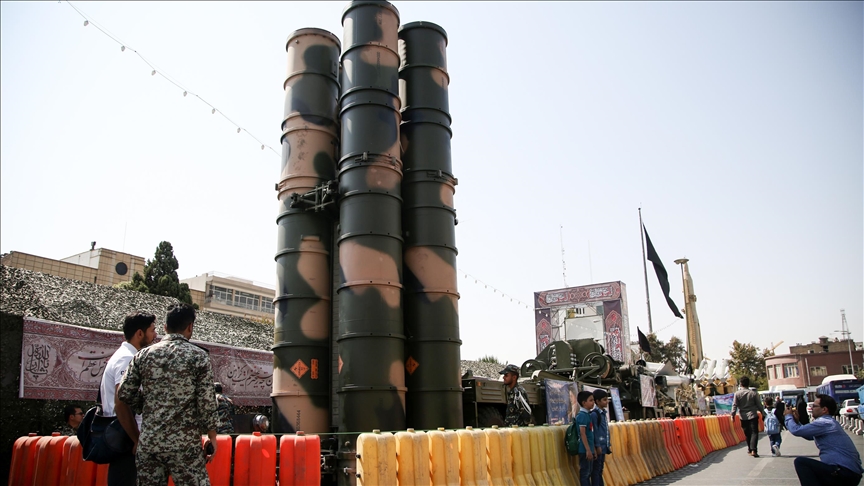Iran unveils new indigenous air defense systems amid regional tensions
Tensions have stirred up in recent months between Iran and Israel amid war on Gaza
 S300 air defense systems are on display at Baharestan Square on the occasion of the Iranian Defense Week in Tehran, Iran on September 25, 2017.
( Fatemeh Bahrami - Anadolu Agency )
S300 air defense systems are on display at Baharestan Square on the occasion of the Iranian Defense Week in Tehran, Iran on September 25, 2017.
( Fatemeh Bahrami - Anadolu Agency )
TEHRAN, Iran
With senior political and military officials on hand, Iran on Saturday unveiled new anti-ballistic missile and air defense systems developed by experts at the country’s Defense Ministry.
The unveiling ceremony of the indigenous military systems took place in the capital Tehran in the presence of Iran’s defense minister, Mohammad Reza Gharaei Ashtiani.
The new missile system is named Arman (aspiration in Persian) while the new air defense system is known as Azarakhsh (thunderbolt in Persian).
Arman is also known as Tactical Sayyad, as the missiles used in it belong to the Sayyad 3 class. The system is capable of detecting targets from a distance of 180 kilometers (112 miles) and engaging at least 12 targets within the range of 120 km (74.5 mi) simultaneously, state media reported.
The Azarakhsh, on the other hand, is equipped to simultaneously use radar and electro-optic systems to detect and intercept targets, reports said, adding that it uses infrared detention systems.
The two newly developed air defense systems will be integrated into the nationwide air defense network to enhance its defense capabilities, state media said.
Speaking at the ceremony, Ashtiani said the Arman air defense system is capable of springing into action within three minutes, adding that the systems are employed for high-altitude operations.
The Azarakhsh, he said, is designed to protect key Iranian facilities from hostile drones and micro air vehicles (MAVs) and can be installed on various types of vehicles.
The unveiling of the two systems comes amid heightened tensions in the region since the start of the Israeli war on Gaza, which has so far claimed over 28,000 Palestinian lives.
Iranian-allied groups have carried out a string of attacks on US and Israeli interests in the region, including in the Red Sea, Iraq and Syria, while the US and Israel have also killed many Iranian military advisors in Syria.
Earlier this week, a series of attacks were reported on Iran’s main gas pipeline, which temporarily halted the supply of gas to central and southern cities. Authorities blamed terrorist sabotage.
On Friday, the New York Times cited sources as saying that Israel was behind the attack.


